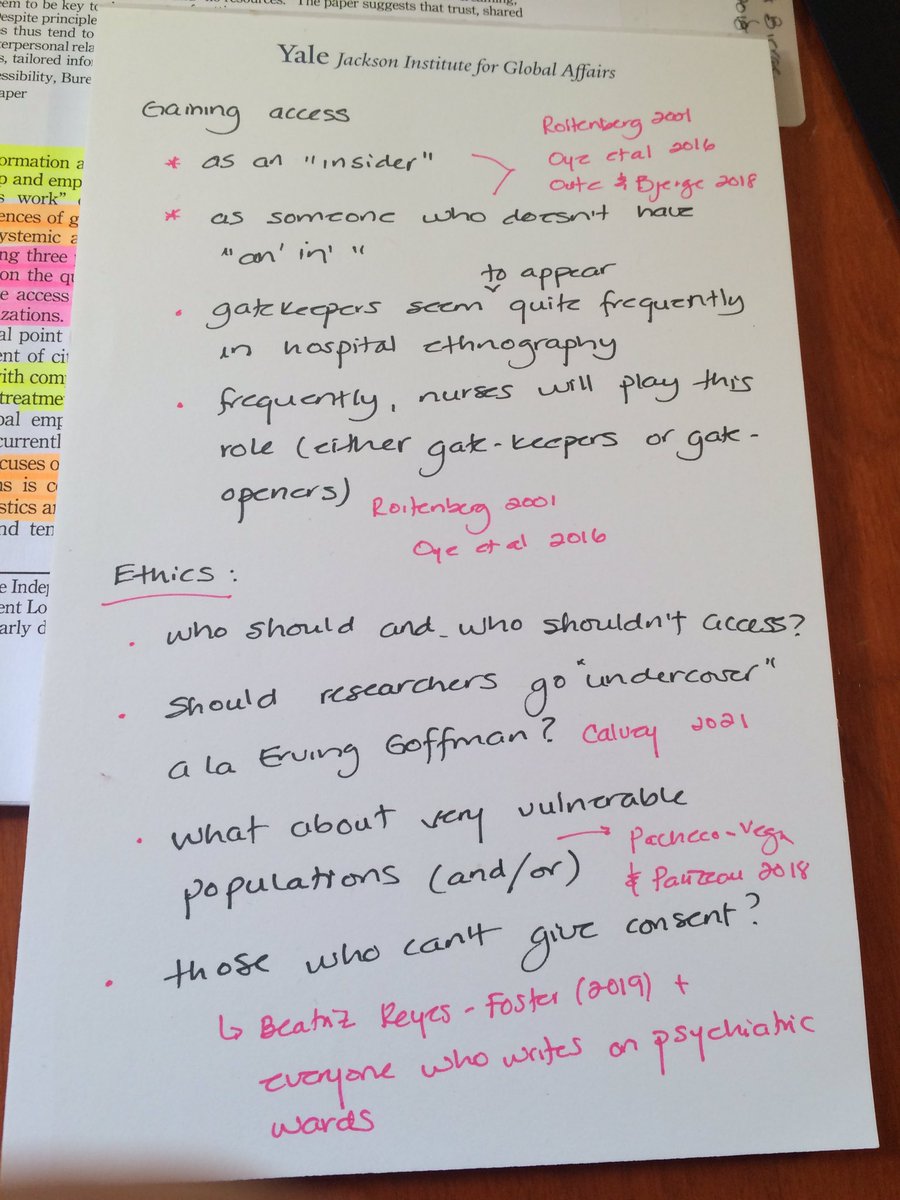
I have 261 words on a Sunday morning at 8:00am, not yet caffeinated, and I don't even know how that happened.
(I'm lying - I DO know how that happened:
a) I went to sleep thinking deeply about this issue (ethics of fieldwork)
2) I have MANY questions (Prompting Questions)
(I'm lying - I DO know how that happened:
a) I went to sleep thinking deeply about this issue (ethics of fieldwork)
2) I have MANY questions (Prompting Questions)

3) Because I write to help ME understand things and make sense of what I'm thinking, I use Prompting Questions and Topic Sentences to draft a paragraph. NOTE: I don't yet know if what I wrote makes sense, BUT it's on its way. See my post on paragraphs:
raulpacheco.org/2018/10/writin…
raulpacheco.org/2018/10/writin…
So do I get to cite my dear friend, award winning book author @BeckyGMartinez in my memorandum on the ethics of fieldwork in #HospitalEthnography? Why yes I do. 

Note I realized I needed a “bridging paragraph” between “ethics of fieldwork in care facilities” and “psychiatric wards”
The great thing about free-writing and just dumping thoughts on the page is that it helps me produce text that I am revise later.
The great thing about free-writing and just dumping thoughts on the page is that it helps me produce text that I am revise later.

This is the “making sense of things” section of my desk.
Usually, I draft ideas by hand, and only after I’ve done an outline and written a few Prompting Questions and/or Topic Sentences, do I go and type. But this morning the words just flowed and I went with the flow.
Usually, I draft ideas by hand, and only after I’ve done an outline and written a few Prompting Questions and/or Topic Sentences, do I go and type. But this morning the words just flowed and I went with the flow.

For those who ask about my marginalia: frequently I summarize key points, but other times I have a dialogue with myself - what did I learn from this sentence or paragraph or section? Or how is this research linked to my own or to others? 

So these are my #MorningParagraphs (2 well crafted, 2 in drafty form). Also, my #DailyWordCount
@WendyLBelcher - today I wrote a 429 words memo on the ethics of fieldwork in hospital ethnography
@loleen_berdahl - I wrote for more than 10 minutes! (1 hour)
</end>
@WendyLBelcher - today I wrote a 429 words memo on the ethics of fieldwork in hospital ethnography
@loleen_berdahl - I wrote for more than 10 minutes! (1 hour)
</end>
• • •
Missing some Tweet in this thread? You can try to
force a refresh









